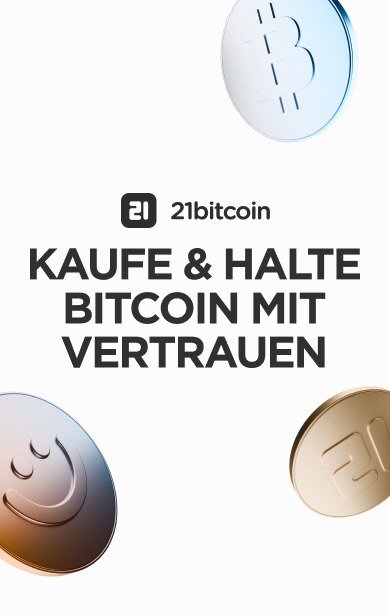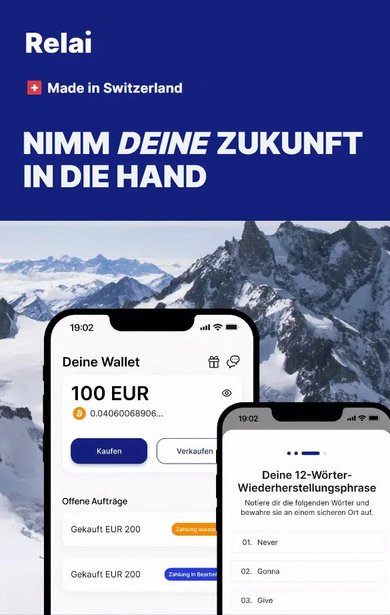Payment service provider Block now buys Bitcoin monthly
The company behind the Cash app, which is so popular in the US, has announced that it will invest a portion of its revenues in Bitcoin each month. Jack Dorsey, CEO and co-founder of Block, shared the news on 𝕏.
block is DCA'ing bitcoin every month. here's how your company can do it too: https://t.co/xabpCVZdn8-
jack (@jack) May 2, 2024
DCA stands for "Dollar Cost Averaging" and describes an investment strategy in which investors buy an asset at regular intervals. The German equivalent of the term is "Sparplan".
The payment service provider reported its quarterly figures yesterday and - as is customary in the corporate world - waited until then to announce them. Block actually started its Bitcoin savings plan back in April. Since then, the company has been using 10 percent of its gross profit from the Bitcoin business to put it into Bitcoin each month. This is clear from the official announcement.
With the launch of Square's Bitcoin Conversion product, which allows sellers to automatically convert a portion of their sales into Bitcoin inventory, we are announcing our new Corporate Balance Sheet Dollar Cost Average ("DCA") program, under which we will use 10% of Block's monthly gross profit from Bitcoin products each month to invest in Bitcoin. An evolution of our previous strategy of buying Bitcoin in lump sums, the program brings a fundamental investment approach to Block's exposure to the asset class.
From the announcement
In the first quarter of this year, Block generated $80 million in gross profit from the Cash App's Bitcoin business, an increase of nearly 60 percent from the previous quarter. If these figures remain the same, the payment service provider would buy almost 2.7 million US dollars worth of Bitcoin per month. On top of this, however, there should also be revenue from other Bitcoin activities. In April, Block already bought 4.4 million US dollars worth of Bitcoin.
The monthly gross profit from Bitcoin products includes the gross profit Block receives from (i) Cash App customers buying and selling Bitcoin, (ii) Cash App Bitcoin withdrawals and (iii) other Bitcoin products from Block's new initiatives. For April 2024, the amount purchased under the DCA was USD 4.4 million.
From the announcement
The Jack Dorsey-led company also emphasized in the announcement that it continues to rely on Satoshi Nakamoto's creation not only for business operations and its own balance sheet, but also from an ideological perspective.
We view Bitcoin as a tool for global economic empowerment; it's a way for individuals around the world to participate in a global monetary system and secure their own financial future.
From the announcement
In the recent shareholder letter, the company also highlighted why it is backing Bitcoin and not other cryptocurrencies.
Why Bitcoin and not all the other "cryptos"? Satoshi developed Bitcoin to solve a very specific problem related to payments that the world has since recognized as extremely valuable. Most other projects don't solve other problems or merely try to be a speculative commodity. We benefit from an open money protocol and that is what we want to build on.
From the letter to shareholders
Block and Bitcoin
Block is a listed payment service provider with a market capitalization of around USD 40 billion. Jack Dorsey, the co-founder and former CEO of Twitter, founded Block in 2009 together with Jim McKelvey. The company's product portfolio includes the Cash App, which is used by more than 50 million people. Block is also known for its payment terminals, which operate under the Square segment and enable smaller merchants to accept card payments. Today, Block offers a wide range of financial services to its large customer base - including the purchase of Bitcoin via the Cash app or via Square's new Bitcoin conversion product, which allows corporate customers to easily convert a portion of their earnings into the asset.
The company was still called Square until the end of 2021, when it changed its name to Block in line with blockchain technology. The name change was also accompanied by a stronger focus on Bitcoin-related products and services. Jack Dorsey also vacated his position at Twitter in the process and has since concentrated entirely on his work at the payment service provider. Block is also involved in hardware wallets and Bitcoin mining and, with Spiral, has a sub-unit for the development and support of open source projects in the Bitcoin ecosystem.
In October 2020, Block bought Bitcoin for the first time, for 50 million US dollars. At a price of just over USD 10,000 per Bitcoin, the company was able to secure 4,709 BTC. In February, Block followed up and bought 3,318 BTC. As the Bitcoin price was already over 50,000 US dollars at the time, Block had to raise 170 million US dollars for the purchase. As at March 31, i.e. before the start of the Bitcoin savings plan, Block held 8,038 BTC on its balance sheet. This corresponds to around 9 percent of the liquid portfolio. At a Bitcoin price of just under 60,000 US dollars, Block has turned the 220 million US dollars invested into almost 500 million US dollars.
Bitcoin savings plan is in vogue
Block was not the first to come up with the idea of investing in Bitcoin via a savings plan. For example, the country of El Salvador has been buying one Bitcoin every day since November 2022. Prior to this, the Central American country had also made one-off investments, which are also clearly in the black today.
The software company MicroStrategy, which pursues an all-in Bitcoin strategy, also buys the asset on a recurring basis, but with irregular sums. Although MicroStrategy, like Block, puts its operating profits into Bitcoin, these are overshadowed by the many large one-off purchases that the company, founded by Michael Saylor, makes when it has been able to raise new funds through fundraising methods such as issuing convertible bonds.
A savings plan strategy ensures that investors buy an asset at an average price and are not driven by emotion. In the case of Bitcoin, this approach has proven popular and useful due to the sharp price fluctuations that can lead to greed or panic. With a savings plan, investors can minimize the risk of having invested in Bitcoin at the worst possible time and then being in the red for several years for the first time. It will be interesting to see whether Block's strategy pays off in the long term and whether it will find more imitators.






